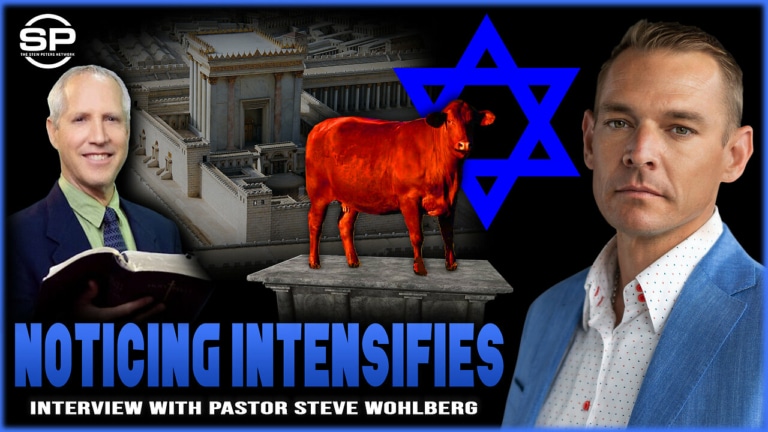We are nearing the conclusion of this series exploring the biblical doctrine of Hell. After this article, there’s one more to go – the grand finale. By the time you read this, this material will have been organized into a small booklet entitled, The Hot Topic of Hell , which will soon be available from White Horse Media.
My own mother – who recently turned 73 years old – is not presently a believer in Jesus Christ. Neither is my brother. Nor are many of my Jewish relatives. According to many well-meaning Christian teachers, if nothing changes, these relatives of mine are doomed to eternal flames.
Throughout this series, I have tried to disprove this popular teaching from God’s Word. I’ve quoted Scriptures like, “the wages of sin is death ” (Romans 6:23), and Jesus Christ’s own words, “For God so loved the world that He gave His only begotten Son, that whosoever believes in Him should not perish but have eternal life” (John 3:16). Based on my research, words like “death” and “perish” do not mean “conscious eternal torment.” Rather, they mean just what they suggest, that the unsaved will someday cease to exist. Because of their sinful choices, the lost have forfeited eternal life. After the Day of Judgment and a just sentence, the only thing a merciful God can do is to finally pull the plug, thus ending their existence. I pray that my family members will wake up before it’s too late.
In the last few posts we have closely examined key passages that seem, at least on the surface, to contradict my conclusions. We’ve discussed “absent from the body” (2 Cor. 5:8), the dying thief (Luke 23:43), the appearance of Moses and Elijah (Luke 9:28-36), and souls under the altar (Revelation 6:9-11). It’s now time to zero in on the Mother of all Hell Verses – the Rich Man and Lazarus. More than any other passage, this section is used to prove that lost sinners don’t sleep unconsciously in their graves awaiting the resurrection (which so many Bible verses plainly teach – see Eccl. 9:5, 10, Ps. 13:3; Acts 7:60; John 5:28, 29; 6:39, 40, 44, 54; 11:11-14, etc.), but that they plunge instantly into flames at death, and sizzle eternally. Let’s take a closer look.
The story is found in Luke 16:19-31. Because of space limitations, I will not quote the entire passage. Jesus Christ declared:
There was a certain rich man who was clothed in purple and fine linen and fared sumptuously every day. But there was a certain beggar named Lazarus, full of sores, who was laid at his gate, desiring to be fed with the crumbs which fell from the rich man’s table. Moreover the dogs came and licked his sores. So it was that the beggar died, and was carried by the angels to Abraham’s bosom. The rich man also died and was buried. And being in torments in Hades, he lifted up his eyes and saw Abraham afar off, and Lazarus in his bosom. Then he cried and said, ‘Father Abraham, have mercy on me, and send Lazarus that he may dip the tip of his finger in water and cool my tongue; for I am tormented in this flame.’
After denying his request, Abraham finally told the rich man,
‘If they do not hear Moses and the prophets, neither will they be persuaded though one rise from the dead.’
To begin with, I want to make one highly significant mega-point: This is the ONLY place in the entire New Testament that says that a lost soul descends into a fiery hell immediately at death! Such a doctrine is not taught anywhere else – not by Matthew, Mark, John, James, Peter or Paul. Did you get that? Paul wrote most of the New Testament, and he didn’t teach it even once . Let this fact sink into your soul.
Second, Jesus often told “parables” or stories that were symbolic of deeper truths. Although parables contain many practical lessons, not every item should be taken literally. Is this story a parable? We believe so.
Here are 7 reasons why:
- Jesus often began His parables with the phrase, “a certain…” this or that (see Luke 14:16; 15:11; 16:1; 19:11, 12; 20:9, KJV). If you look up these verses in Luke’s gospel, you will discover that they are all parables. Thus it’s logical to assume the Rich Man and Lazarus story is also a parable.
- A man cannot physically enter into “the bosom” or chest of another person as Christ described.
- Can someone literally burning in flames carry on a normal conversation?
- Can those in heaven and hell talk to each other?
- Jesus represented the rich man as being bodily in hell, with eyes, a mouth, a tongue, etc. This is obviously symbolic . If you were to dig up a real rich man’s grave, wouldn’t his body be there? Of course!
- A real burning man would not request a little water to cool his tongue alone. What about the rest of his body?
- Consciousness at death contradicts the rest of the Bible .
Significantly, Jesus didn’t interpret every parable He told. Yet when His disciples asked Him to interpret another parable about weeds in a field, Jesus plainly explained that hellfire occurs at “ the end of this world ,” rather than at death (see Matthew 13:36, 40-42, KJV).
The context of Christ’s parable shows He was talking directly to wealthy Pharisees who were mocking Him with their tongues (see Luke 16:14). Those Pharisees believed the rich were blessed, while the poor lived under God’s curse. Jesus flipped things upside down by describing a saved poor man, and a lost rich man. The part about the rich man asking for his tongue to be soothed was a direct warning to those Pharisees that their lips were catapulting them toward hell-fire. Finally, at the end of His parable, Jesus declared that even resurrecting Lazarus from the dead wouldn’t convince the doubters.
This leads to the next point: Why did Jesus specify the name Lazarus? Because His parable was also a prophecy. Later Jesus would resurrect a real person named Lazarus, yet this miracle would not convince the Pharisees that He was the Messiah (John 11:1-53).
Here’s a solid principle: We should interpret parables in the light of the rest of the Bible, rather than the rest of the Bible in the light of one parable.
And the rest of the Bible is unmistakably clear: the dead are dead, sleeping in their graves, silently waiting for Resurrection Day .






